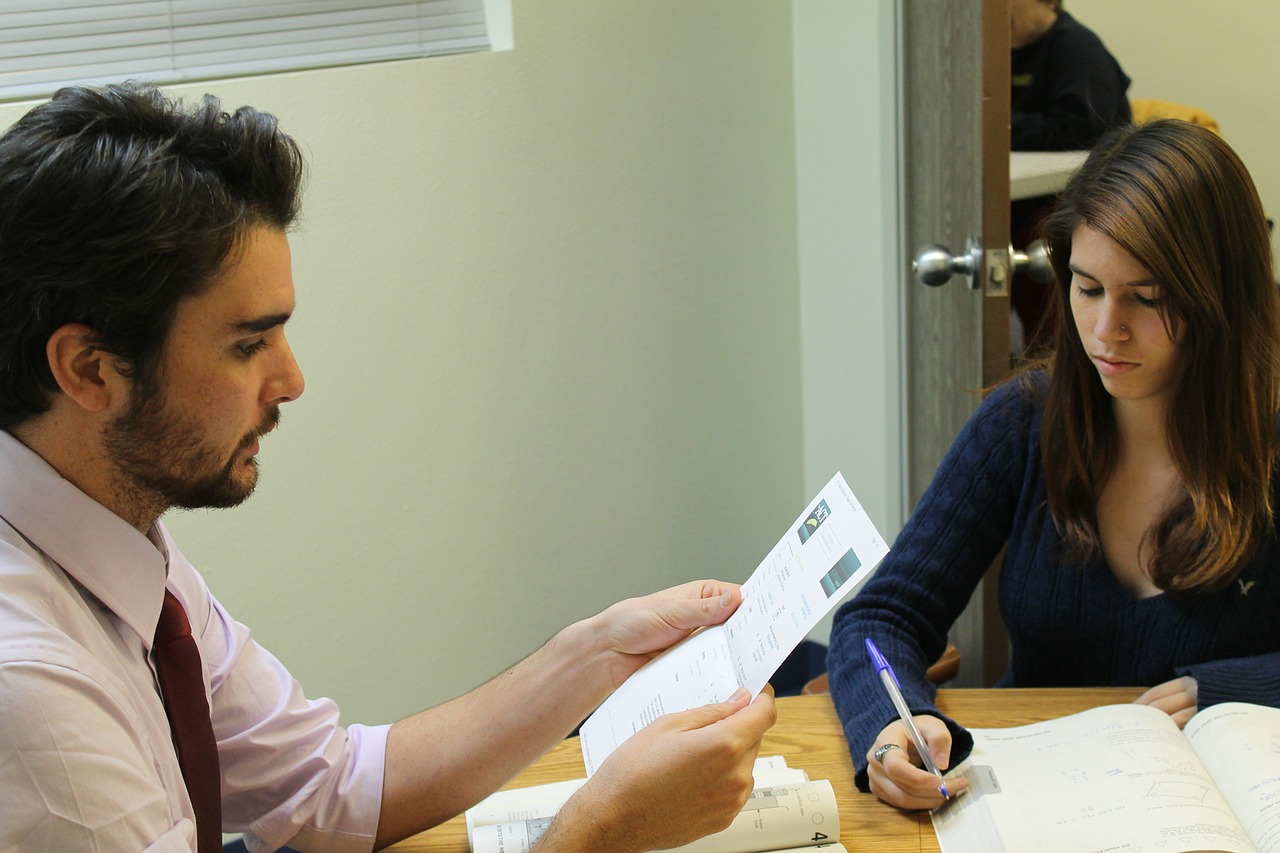How to Navigate a Career Change Without Starting Over

Switching careers can feel like stepping into uncharted territory, especially when you’ve already spent years building your skills and reputation in a particular field. The good news is, that making a career change doesn’t always mean starting from scratch. Many professionals discover that the experience and knowledge they’ve gained are more transferable than they initially thought. Whether you’re seeking a new sense of purpose, better work-life balance, or new challenges, it’s possible to transition into a different industry or role while still building on the foundation you’ve already established. This article explores how to pivot strategically and confidently without erasing the past.
Assess Your Transferable Skills
One of the most empowering steps you can take is identifying the skills you’ve developed that are applicable across multiple industries. Communication, problem-solving, project management, leadership, and technical proficiency are often valuable skills, regardless of matter the profession. For example, a teacher moving into corporate training or a journalist switching to content marketing can carry over their core strengths. Start by listing out your achievements and responsibilities, then match those with what’s needed in your target field. This exercise not only highlights your qualifications but also boosts your confidence as you leap.
Research Target Industries and Roles
Before making a move, it’s crucial to understand the landscape you’re entering. Take the time to explore which industries are growing, what roles are in demand, and how your background can align with current needs. Talk to people in your desired field, attend industry events or webinars, and read up on trends and job descriptions. You’ll gain a clearer picture of what employers are looking for and where you might fit in. This knowledge helps you craft a more focused resume and prepares you to speak confidently in interviews about your decision to change careers.

Upskill Without Overcommitting
While some career changes require formal education or certifications, many just need targeted learning. Short courses, online tutorials, boot camps, or workshops can fill gaps without requiring a full degree. Focus on learning the tools or platforms commonly used in your new field, and consider gaining hands-on experience through freelancing, volunteering, or side projects. These approaches demonstrate initiative and help bridge the transition without demanding a long or costly detour. The goal is to supplement what you already know, not start from square one.
Rebrand Yourself Professionally
When changing careers, how you present yourself matters. Tailor your resume to highlight relevant experience and transferable skills rather than just listing past job titles. Write a compelling summary that shows your enthusiasm for the new field and how your background brings value. LinkedIn is also an important tool—update your profile to reflect your career goals and begin sharing content related to your target industry. By strategically rebranding, you help potential employers see the connections between your past and your future.
Lean on Your Network
Your existing network can be more helpful than you think during a career change. Reach out to former colleagues, mentors, and professional connections who may know someone in the field you’re pursuing. Don’t be afraid to ask for informational interviews or referrals. Many people are willing to support a career transition when they understand your goals and see your commitment. Networking doesn’t guarantee instant success, but it often opens doors that job boards alone cannot.
A career change doesn’t have to mean starting over—it can mean starting smarter. By recognizing your transferable skills, researching your new field, and strategically preparing for the transition, you can shift directions while preserving your professional momentum. The journey might take time, but with careful planning and persistence, you can find a new path that offers both fulfillment and continuity.…







 People who may have a high IQ might lack the practical skills and knowledge to put their high aptitude to use. It doesn’t matter how many books one has read. It’s all about being able to apply the knowledge gained from those books to real-life situations. Therefore, having a high IQ does not necessarily mean you will be successful in the future. Not only does success require hard work, but also the ability to take the initiative and implement learned skills in the real world.
People who may have a high IQ might lack the practical skills and knowledge to put their high aptitude to use. It doesn’t matter how many books one has read. It’s all about being able to apply the knowledge gained from those books to real-life situations. Therefore, having a high IQ does not necessarily mean you will be successful in the future. Not only does success require hard work, but also the ability to take the initiative and implement learned skills in the real world. Okay, you might think your IQ will completely ensure your success, but this is far from the truth. In fact, according to Howard Gardner’s Theory of Multiple Intelligences, there are nine different types of intelligence. These include linguistic, logical-mathematical, spatial, bodily-kinesthetic, musical, interpersonal, and intrapersonal intelligence. All these elements combine to form a successful individual, and IQ is just one of them. Without a combination of different types of intelligence, success in the future will be hard to achieve.
Okay, you might think your IQ will completely ensure your success, but this is far from the truth. In fact, according to Howard Gardner’s Theory of Multiple Intelligences, there are nine different types of intelligence. These include linguistic, logical-mathematical, spatial, bodily-kinesthetic, musical, interpersonal, and intrapersonal intelligence. All these elements combine to form a successful individual, and IQ is just one of them. Without a combination of different types of intelligence, success in the future will be hard to achieve.
 Even though most people are put off by the idea of using a
Even though most people are put off by the idea of using a  When running a business, your time is valuable. The last thing you want to do is spend hours sifting through resumes and applications. Job posting sites can help save you time by pre-screening candidates and only presenting you with the most qualified applicants.
When running a business, your time is valuable. The last thing you want to do is spend hours sifting through resumes and applications. Job posting sites can help save you time by pre-screening candidates and only presenting you with the most qualified applicants.



 One of the best reasons to hire a professional dog trainer is to help you live peacefully with your pet. If you struggle to get your dog to listen to you or follow basic commands, it can be very frustrating. This frustration can lead to anger and resentment towards your pet, which is not fair to either of you.
One of the best reasons to hire a professional dog trainer is to help you live peacefully with your pet. If you struggle to get your dog to listen to you or follow basic commands, it can be very frustrating. This frustration can lead to anger and resentment towards your pet, which is not fair to either of you.
 Before you apply for a job, you should research the company. Learn about the company’s history, its products and services, and its mission and values. It will help you determine if the company is a good fit. It’ll also show the employer that you are interested in their company and have taken the time to learn about them.
Before you apply for a job, you should research the company. Learn about the company’s history, its products and services, and its mission and values. It will help you determine if the company is a good fit. It’ll also show the employer that you are interested in their company and have taken the time to learn about them. When looking for a job, it can be tempting to apply for every job. But, you should only apply for jobs that you are interested in and qualified for. Applying for too many jobs will decrease your chances of getting hired. It will also show the employer that you are not interested in their company or the position.
When looking for a job, it can be tempting to apply for every job. But, you should only apply for jobs that you are interested in and qualified for. Applying for too many jobs will decrease your chances of getting hired. It will also show the employer that you are not interested in their company or the position.



 One of the best approaches to teach English is through conversation classes. In a conversation class, a teacher and student can talk about any topic using English. This way, the student will apply all the things that he learned. The teacher may sometimes interrupt by checking on the mistakes. During a conversation class, the student will not only practice his speaking skills but also his listening skills. This is because he will not be the one talking but also his teacher.
One of the best approaches to teach English is through conversation classes. In a conversation class, a teacher and student can talk about any topic using English. This way, the student will apply all the things that he learned. The teacher may sometimes interrupt by checking on the mistakes. During a conversation class, the student will not only practice his speaking skills but also his listening skills. This is because he will not be the one talking but also his teacher.
 Writing essays is one of the most common assignments that are given to students. To have an excellent article, you must spend your precious time to focus on how to go about it. It’s not like other homework that you can sit down and accomplish it there and then. You may need some research. In this case, you may need some help.
Writing essays is one of the most common assignments that are given to students. To have an excellent article, you must spend your precious time to focus on how to go about it. It’s not like other homework that you can sit down and accomplish it there and then. You may need some research. In this case, you may need some help.  Unity and Coherence
Unity and Coherence




 Before you enter in a confined space, the first step should be to conduct a safety inspection. You need to do a quick inspection to determine the safety of the environment. When inspecting the environment, make sure that the area is well-ventilated.
Before you enter in a confined space, the first step should be to conduct a safety inspection. You need to do a quick inspection to determine the safety of the environment. When inspecting the environment, make sure that the area is well-ventilated.





 Keep Your Paperwork Handy
Keep Your Paperwork Handy Seeking the assistance of hiring agencies will help you a lot because such companies can help you find companies that accept refugees. Therefore, make an effort to search for such agencies because your chances of getting hired are higher with them. They have partnered with some of the largest companies in the world to help refugees find employment.
Seeking the assistance of hiring agencies will help you a lot because such companies can help you find companies that accept refugees. Therefore, make an effort to search for such agencies because your chances of getting hired are higher with them. They have partnered with some of the largest companies in the world to help refugees find employment.
 If you run a business, communication is essential. You need to learn how to talk to your customers and even potential customers. It is not everyone who is talented in communication but going to business school can teach you how to be a good communicator.
If you run a business, communication is essential. You need to learn how to talk to your customers and even potential customers. It is not everyone who is talented in communication but going to business school can teach you how to be a good communicator. Taking a business course will teach you about general management. Management is very important when running a business because you are required to interact with different types of people. At this time you will learn how to manage your members of staff and also manage other business resources.
Taking a business course will teach you about general management. Management is very important when running a business because you are required to interact with different types of people. At this time you will learn how to manage your members of staff and also manage other business resources.
 When you are looking for a tutor, make sure that you find out whether the tutor has enough experience. Also, various tutors specialize in different subjects. This, therefore, means that you will select a tutor who has specialized in the subject that your child needs help. Also, it is your responsibility to ensure that you hire a tutor who has completed a tutor training program and one who holds a college degree. If you hire a tutor who has undergone these procedures, then that shows he or she understands the educational theory, remedial approaches, and instructional strategies.
When you are looking for a tutor, make sure that you find out whether the tutor has enough experience. Also, various tutors specialize in different subjects. This, therefore, means that you will select a tutor who has specialized in the subject that your child needs help. Also, it is your responsibility to ensure that you hire a tutor who has completed a tutor training program and one who holds a college degree. If you hire a tutor who has undergone these procedures, then that shows he or she understands the educational theory, remedial approaches, and instructional strategies. Fees may vary depending on the place where you live. When you are choosing a tutor, make sure that you can differentiate the salary of a teacher and that one of your tutor.…
Fees may vary depending on the place where you live. When you are choosing a tutor, make sure that you can differentiate the salary of a teacher and that one of your tutor.…
 Every person has habits, some bad and some good. The bad habits cause interference with your career development. Making improper gestures or inappropriate things at wrong times will not present you favorably with bosses, gatekeepers, or co-workers. The truth is that behaviors develop reputations which precede the professional engagements. Usually, judgments are based on the previous work rumors and behaviors. Fatigue and stress contribute to undesirable behavior.
Every person has habits, some bad and some good. The bad habits cause interference with your career development. Making improper gestures or inappropriate things at wrong times will not present you favorably with bosses, gatekeepers, or co-workers. The truth is that behaviors develop reputations which precede the professional engagements. Usually, judgments are based on the previous work rumors and behaviors. Fatigue and stress contribute to undesirable behavior. You should not underestimate your life experience and education. It is important to know your knowledge, abilities, and strengths. A lot of people have strengths, but not all of them put effort and take time to change their inner strengths into abilities. When you do not know your strengths, you limit your development in the long run.
You should not underestimate your life experience and education. It is important to know your knowledge, abilities, and strengths. A lot of people have strengths, but not all of them put effort and take time to change their inner strengths into abilities. When you do not know your strengths, you limit your development in the long run.
 If you can motivate yourself, you will find home learning to be a good option for you. You should tear yourself from a lot of things you can be doing at home such as watching TV, doing the washing, and anything else that might be taking your time. Remember that even the weather turning colder or hotter is likely to change your habits. Is it possible to still have time for study then?
If you can motivate yourself, you will find home learning to be a good option for you. You should tear yourself from a lot of things you can be doing at home such as watching TV, doing the washing, and anything else that might be taking your time. Remember that even the weather turning colder or hotter is likely to change your habits. Is it possible to still have time for study then? You have the freedom to work through learning materials at your own pace. You can choose where and when you will do it. If you do not have a positive mindset, you can schedule the time to focus on learning. If you have other commitments such as children or job, you are free to choose the right time to focus on home learning. In fact, limitations should not be an obstacle to achieve your dreams.
You have the freedom to work through learning materials at your own pace. You can choose where and when you will do it. If you do not have a positive mindset, you can schedule the time to focus on learning. If you have other commitments such as children or job, you are free to choose the right time to focus on home learning. In fact, limitations should not be an obstacle to achieve your dreams.
